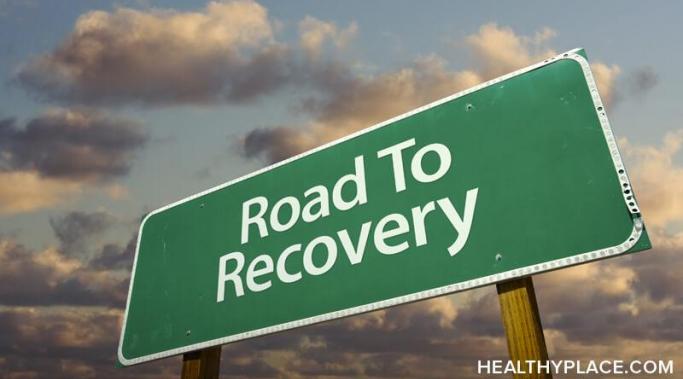Mental illness struggles are often life-long, so I think it’s interesting to look back at different stages in my life and what role they played in my mental health. I have had mental illness symptoms since childhood, but they became a lot more visible when I was a teenager. My mental illness struggles are chronic, but I am in recovery now.
Mental Health - Recovering from Mental Illness
Many times our relationship with food affects our mental illness recovery and our mental illness recovery affects our relationship with food. Whether it’s overeating or not eating enough, usually our eating patterns are abnormal. This affects our mood, energy, thoughts, and feelings about ourselves. Lack of normalcy with food can make it extremely difficult to recover from mental illness. Being healthy and confident in our food choices, or having a good relationship with food, is key to recovery.
Suffering a mental illness when you're young is extremely difficult and debilitating. When you’re young there is an immense amount of pressure to fit in as well as to act and to look a certain way. Judgment and stigma from peers can run high and be openly expressed. Many times, those who suffer from mental illness when they're young believe that something is wrong with them and don’t know how to “snap out of it.” As difficult as it can be to live with a mental illness when you're young, it is also hopeful to know that the suffering doesn’t have to last forever.
My name is Nancy Zacharakis and I’m excited to be joining the Recovering from Mental Illness blog at HealthyPlace. I’ve suffered with depression and anxiety for about three years, from the ages of 21-24. My mental illness began after competing in a bikini bodybuilding competition and suffering with binge eating disorder. The unhealthy relationship with food and my body during my 16-week competition preparation was a catalyst for an eating disorder. My binge eating then led me to feel depressed about my life, my body, my relationships, and my career. I suffered from anxiety as well, feeling anxious about what was happening to me, what my future was going to look like and how I was going to deal with this abnormal behavior.
Attending college with a mental illness can be very challenging. The stress of your course load can exacerbate your mental health symptoms. If you’re attending a school away from home, being far from your family or support system can add even more pressure. My time in college was a very long and bumpy road, but when I slowed down and put my mental health first, I was finally able to graduate in 2014. Here’s how I survived college with a mental illness.
I’m Megan Rahm and I’m a new co-author for the blog Recovering from Mental Illness. I live in Toledo, Ohio with my husband and 14-month-old daughter. I have struggled with mental health symptoms most of my life, and in my early 20s I was diagnosed with bulimia and schizoaffective disorder.
Have you ever thought about the power of psychiatric medications to save lives? In the past few days, I was let go from one of my jobs and one of my pet rats died unexpectedly. This would be a stressful situation for anyone, but a few years ago this would have had me drunk and suicidal. But, thanks to the power of psychiatric medications, I'm sober and safe. I can deal with life's curveballs--something I couldn't do off my medications.
There are many myths about involuntary treatment for mental illness (The Realities of Involuntary Treatment). Involuntary treatment is extremely controversial, and that's an understatement along the lines of saying, "The Arctic is kind of chilly." Part of the reason it's so controversial is because we rarely do it for other illnesses. We prefer to let people "die with their rights." While I'm hesitant to recommend involuntary treatment become standard operating procedure, I can discuss three myths about involuntary treatment.
Do you know how to recover from perfectionism or perfectionistic standards? Perfectionistic standards are one of the symptoms of borderline personality disorder (BPD), according to schema therapy, which I found tremendously helpful in recovering from BPD. Basically, perfectionistic standards are standards set so high that no human can meet them. When we fail to meet these standards, we begin to think we're failures and bad people, and that triggers our symptoms such as self-injury. But the good news is we can recover. Here are some suggestions on how to recover from perfectionism or unreasonably high standards.
Do you know how to recover from an abusive relationship? No one wakes up one day and says, "I think I'll fall in love with someone who abuses me." Most relationships don't become abusive, and most abusive relationships don't become abusive until the relationship is well-established. And lack of violence does not mean lack of abuse (Effects of Emotional Abuse on Adults). Breaking it off is the most dangerous part, but what comes after that? Do victims know how to recover from an abusive relationship?









